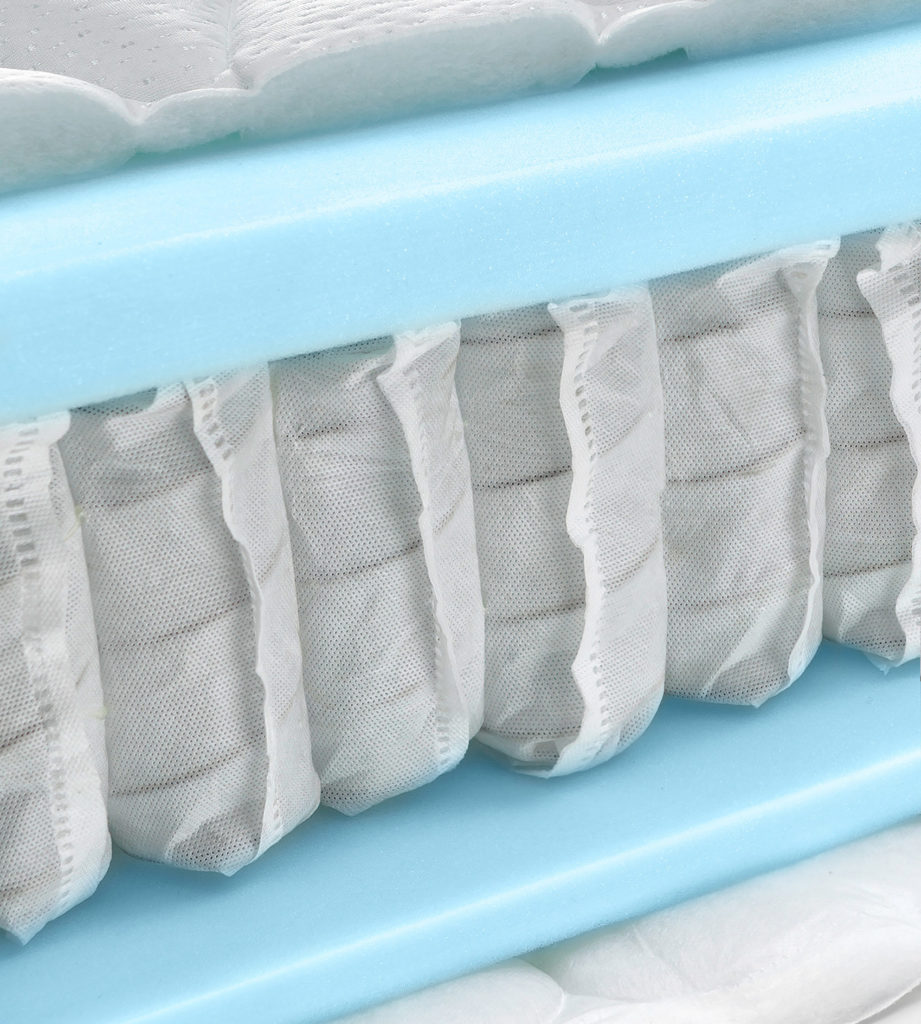If you are looking for the ideal coil count for a mattress, you may be wondering “what is a good coil count for a mattress?”. Coil count is an important factor in selecting a mattress, as it affects the overall support and comfort that the mattress provides. In this article, we will discuss the ideal coil count for a mattress and how to select the right one for you.
What Does Coil Count Mean in Mattresses?
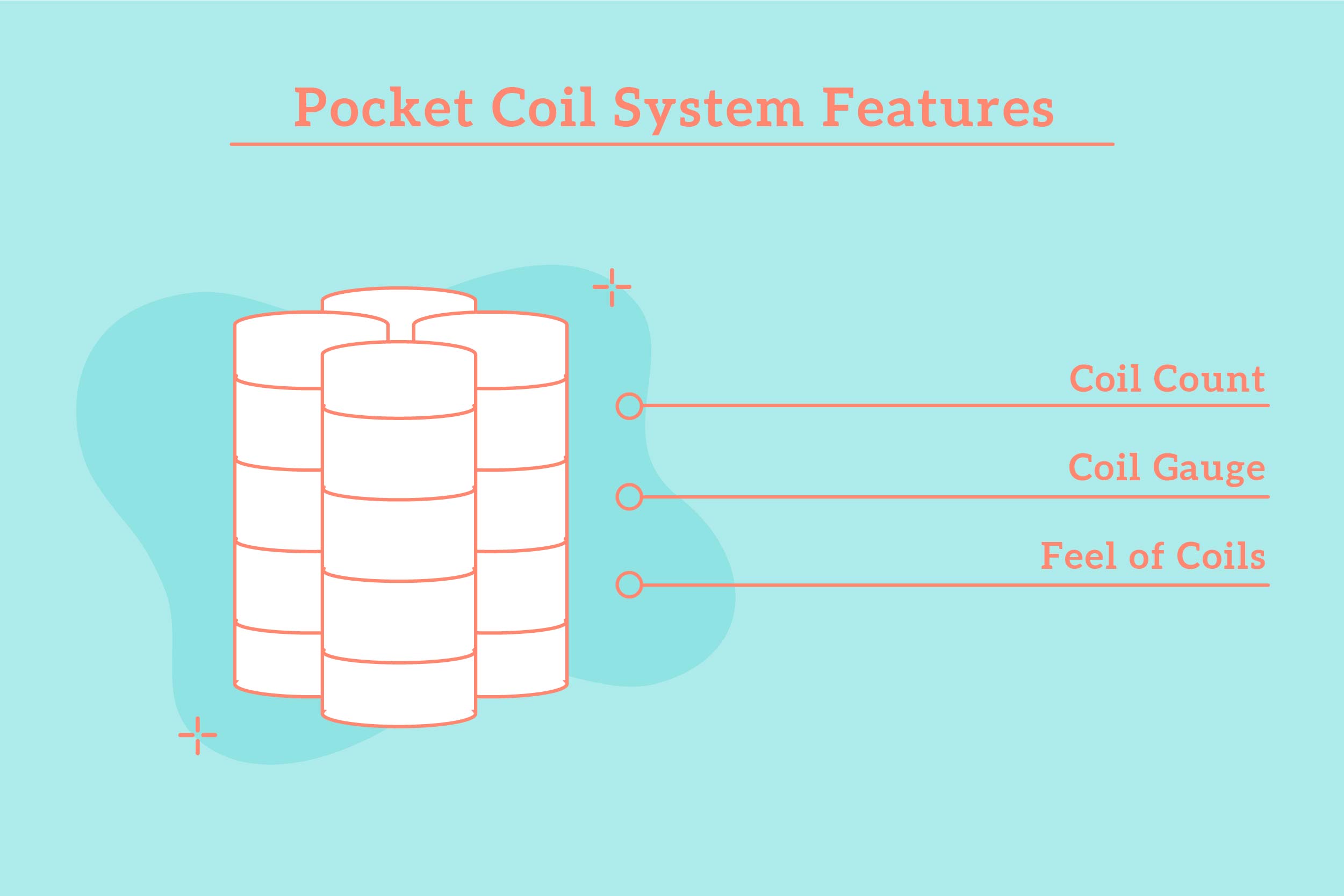
Coil count is the number of coils or springs used in a mattress. It is an important feature to consider when choosing a mattress since it affects the overall comfort and support.
Types of Coils
- Innerspring Coils: These are the most common type of coils used in mattresses today. They are usually made of steel and are designed to provide support and comfort.
- Pocket Springs: These are individual coils that are encased in fabric pockets. They provide more targeted support and are usually quieter than innerspring coils.
- Foam Encased Coils: These are similar to innerspring coils, but they are encased in foam. This helps to reduce noise and provides more targeted support.
How Many Coils Should a Queen Mattress Have?
The ideal number of coils for a queen size mattress is between 500 and 800. This provides enough support for the average person and will ensure long-lasting comfort. Higher coil counts may provide more support, but may also be more expensive. Lower coil counts may be cheaper, but may not provide enough support for some people.
Factors to Consider When Choosing Coil Count
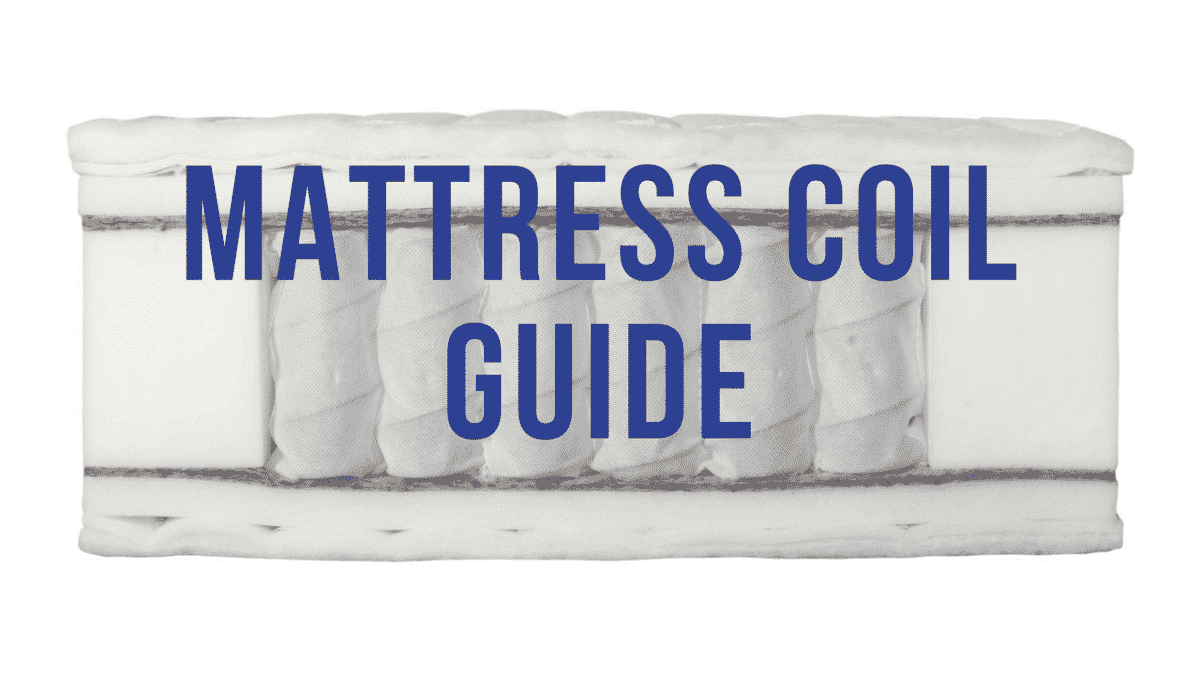
Type of Mattress
The type of mattress you choose is an important factor in determining the ideal coil count. Innerspring mattresses generally have higher coil counts than foam mattresses, however the type of foam used in a foam mattress may also affect the coil count.
Bed Size
The size of the bed you choose also plays a role in determining the ideal coil count. Generally speaking, larger beds require more coils in order to provide adequate support.
Sleepers Weight
The weight of the sleeper is also important when choosing a mattress with the right coil count. Heavier sleepers will need a mattress with more coils for adequate support.
In general, the rule of thumb for determining the ideal coil count for a mattress is to consider the type of mattress, the size of the bed, and the weight of the sleeper. For example, a queen size innerspring mattress with a heavier sleeper may require up to 600 coils, whereas a foam mattress of the same size may only need around 300 coils. Ultimately, the answer to the question of ‘how many coils should a good mattress have’ depends on the individual’s needs and preferences.
Ideal Coil Count for Queen Mattress
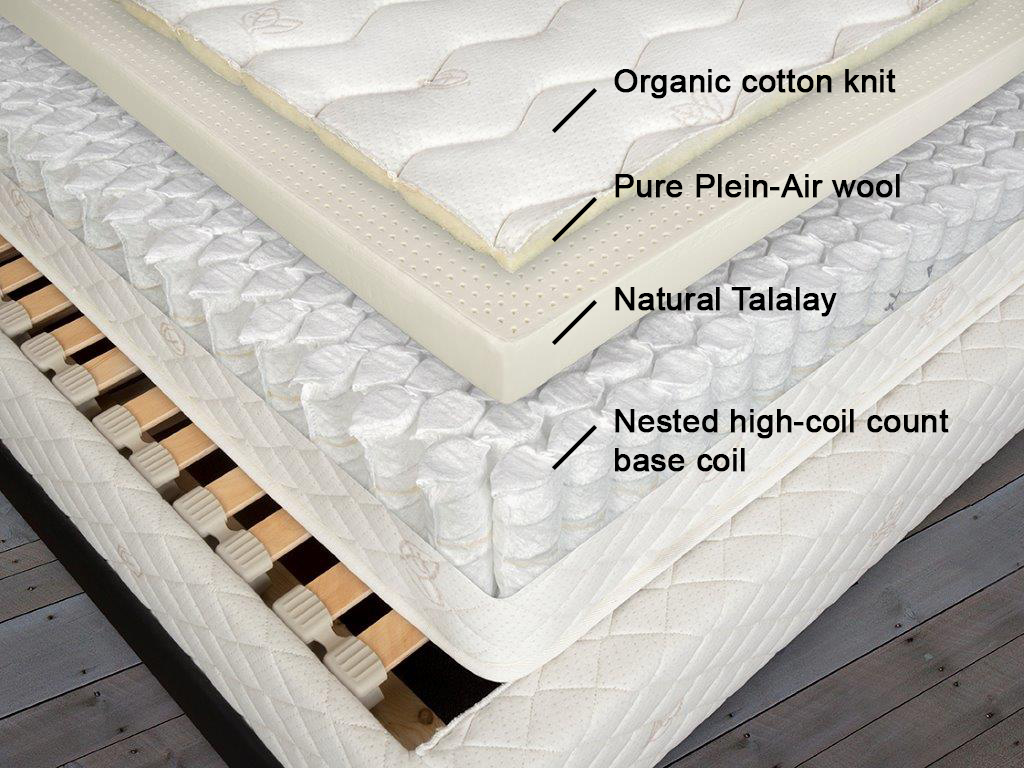
What Does Coil Count Mean in Mattresses? Coil count is the number of coils (springs) in your mattress, which is an important factor when it comes to the overall support and comfort. Generally, the higher the coil count, the greater the support and comfort a mattress will provide.
What is the Ideal Coil Count for a Queen Mattress? The ideal coil count for a queen mattress is between 500 and 1000. This range provides the perfect balance between comfort and support. A mattress with a coil count of 500 or below may be too soft and not provide enough support, while a mattress with a coil count of 1000 or more may be too firm.
What are the Benefits of a High Coil Count?
- Increased support
- Reduced motion transfer
- Reduced pressure points
- Reduced sagging
- Longer mattress lifespan
What are the Drawbacks of a High Coil Count?
- Higher cost
- Heavy weight
- May be too firm for some sleepers
In conclusion, the ideal coil count for a queen mattress is between 500 and 1000. This range provides the perfect balance of comfort and support. A mattress with a coil count of 500 or below may be too soft and not provide enough support, while a mattress with a coil count of 1000 or more may be too firm.
Ideal Coil Count for Twin Mattress
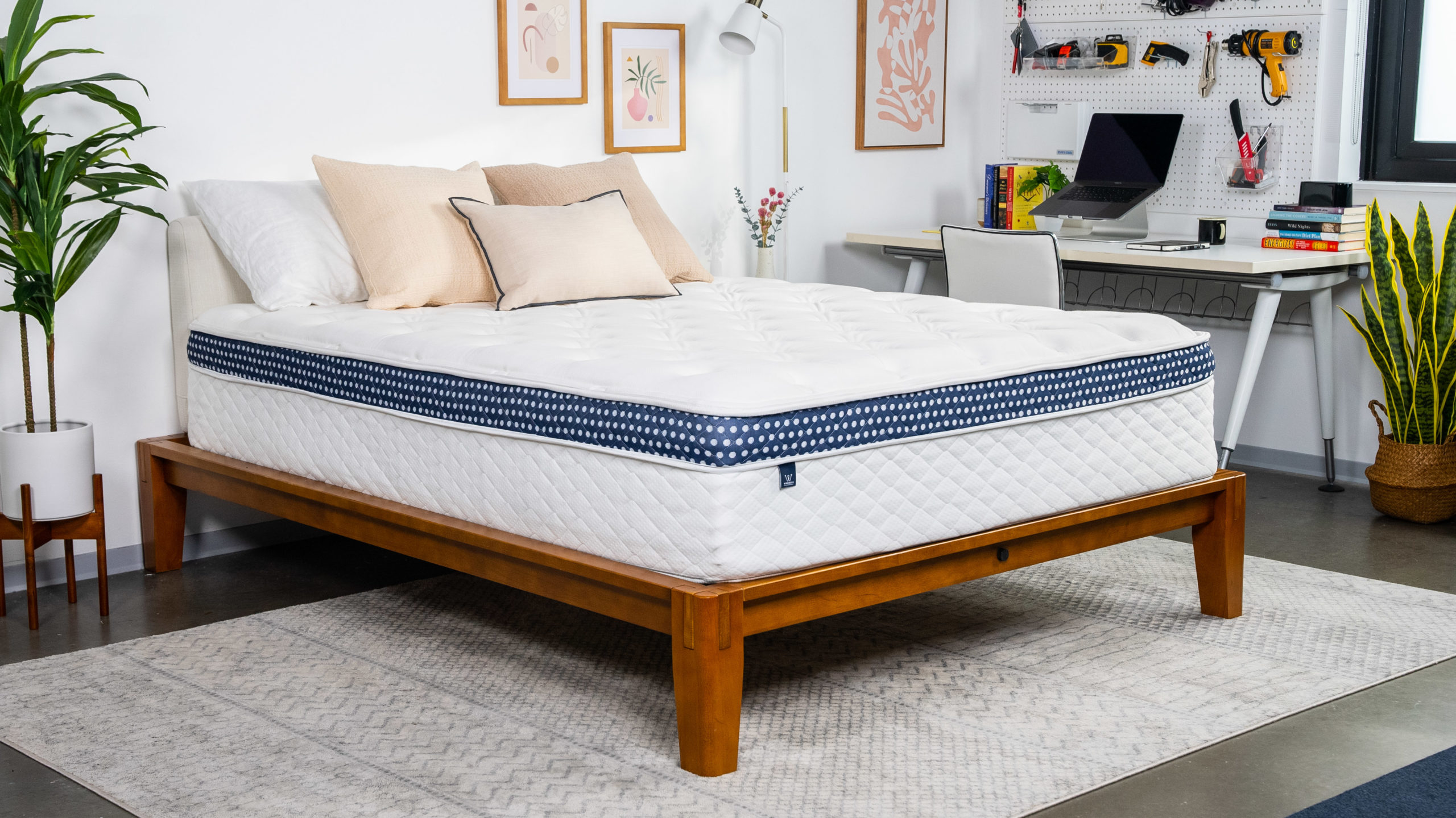
Twin mattresses are the smallest standard mattress size available, measuring at 39 inches wide and 75 inches long. To provide the necessary support for a twin mattress, a coil count of 300 to 400 is recommended.
- Inner spring mattress: 300-400 coils
- Pocketed coil mattress: 600-800 coils
- Hybrid mattress: 400-900 coils
The higher the coil count, the more support and stability the mattress will have. However, the mattress may become too firm if the coil count is too high. It is important to choose the right coil count for your mattress in order to ensure a comfortable sleep.
Ideal Coil Count for King Mattress

King mattresses are the largest mattress size available. They are designed to fit two people comfortably, and the ideal coil count for a king mattress should reflect that.
Generally speaking, the ideal coil count for a king mattress is between 590 and 1,000 coils. This range will provide the best support and comfort for two people who share the mattress. However, it is important to note that the ideal coil count will depend on the type of mattress.
| Type of Mattress | Ideal Coil Count |
|---|---|
| Innerspring | 590 – 1,000 |
| Latex | 800 – 1,000 |
| Hybrid | 800 – 1,000 |
| Memory Foam | 600 – 1,000 |
The coil count for a king mattress is usually higher than for smaller sizes. This is because two people need to be supported and there is more space to fill. It is important to consider the type of mattress when determining the ideal coil count. For example, an innerspring mattress may need fewer coils than a hybrid mattress, while a latex mattress may need more coils than either of these.
In addition to the type of mattress, your body type should also be taken into consideration when determining the ideal coil count for a king mattress. If you are larger than average, you may need a higher coil count to ensure proper support and comfort. Alternatively, if you are smaller than average, you may be able to get away with a lower coil count.
The ideal coil count for a king mattress will depend on many factors, including the type of mattress and your body type. It is important to do your research and find a mattress that will provide you with both support and comfort.
Ideal Coil Count for California King Mattress
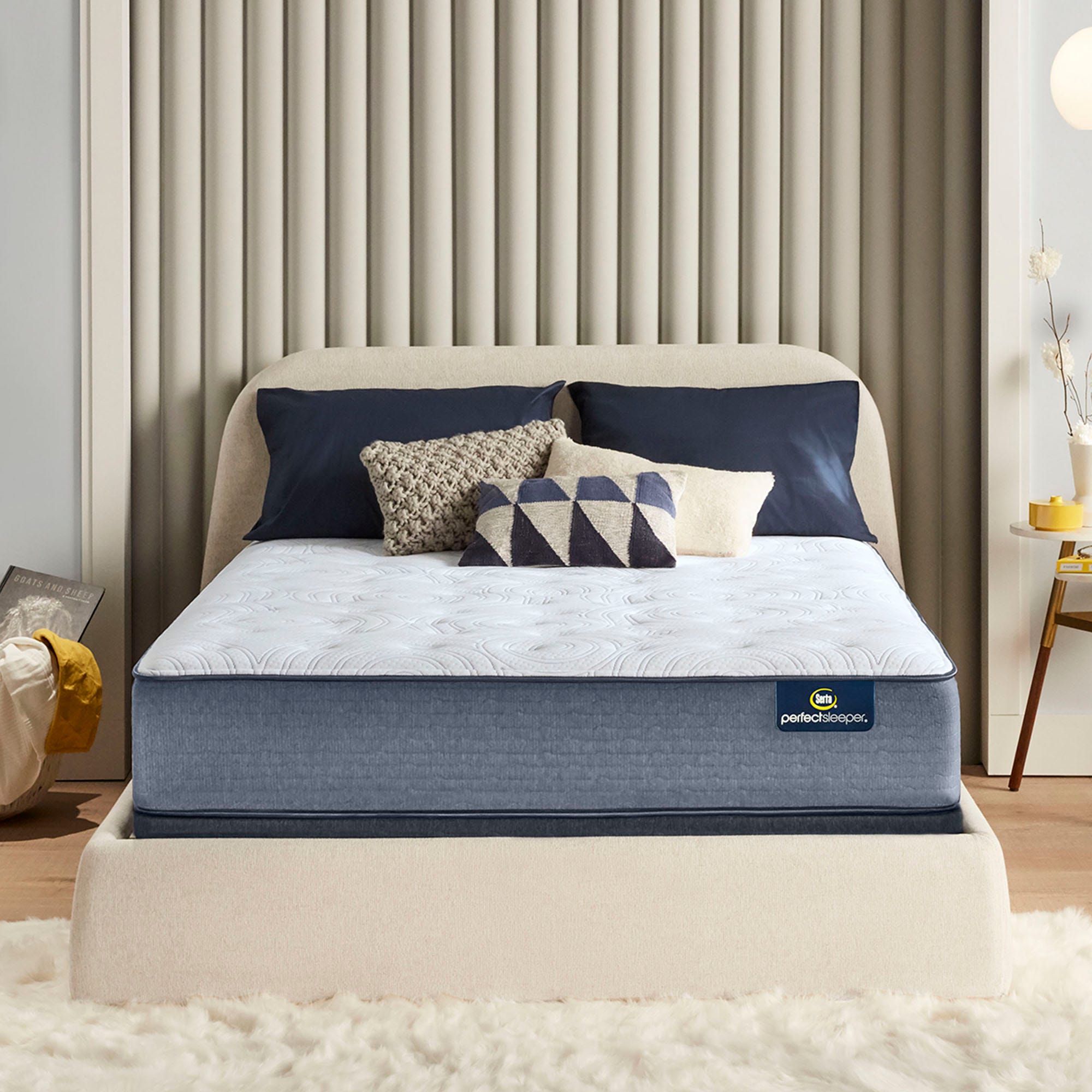
California King mattresses require higher coil counts than traditional king mattresses:
- California King mattresses require more coils to provide sufficient support and comfort.
- As a general rule, you should aim for at least 700 coils in a California King mattress to ensure comfort and durability.
- More coils can increase support and comfort, but at the same time can increase the price of the mattress.
- When shopping for a California King mattress, look for one that has an even number of coils throughout the mattress as this will ensure even support.
Look for higher-gauge coils for better support:
- The gauge of the coils refers to the thickness of the wire used to make the coils.
- A higher gauge coil, usually a 13-gauge coil, is thicker and provides better support than a lower gauge coil, usually a 15-gauge coil.
- When shopping for a California King mattress, look for one that has higher-gauge coils to ensure maximum comfort and support.
Look for additional features to increase comfort and support:
- When shopping for a California King mattress, look for additional features that can increase comfort and support.
- Look for mattresses that have additional layers of padding or cushioning, such as memory foam or latex, to increase comfort and support.
- Also look for mattresses that have reinforced edges or perimeter support to help reduce motion transfer and increase the longevity of the mattress.
Ideal Coil Count for Full Mattress
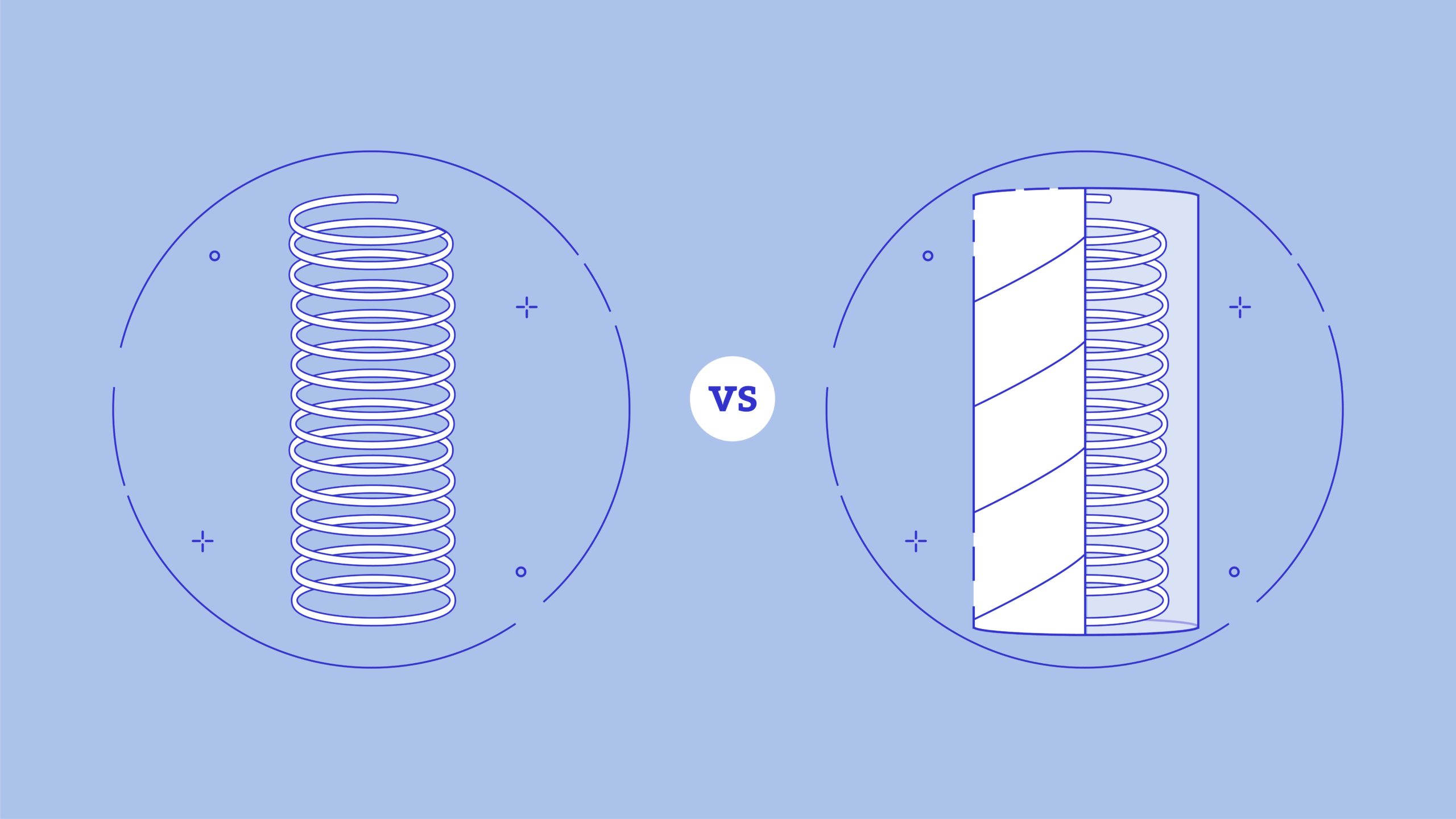
The ideal coil count for a full-size mattress is between 300 and 400 coils. This range provides the most support, comfort, and durability for a full-size mattress. Full-size mattresses do not need as many coils as queen or king mattresses because they are smaller in size. You should also consider the coil gauge when selecting a mattress; a lower gauge indicates a thicker coil and provides more support. Look for a mattress with an innerspring coil count of at least 300 and a coil gauge of 13 for the best full-size mattress.
Ideal Coil Count for a Good Mattress
Coil count is an important factor to consider when purchasing a mattress. It is the number of individual steel coils in the mattress and can have a significant impact on the mattress’s comfort, support, and durability.
When choosing a mattress, the ideal coil count will vary depending on the size, type, and desired comfort level.
- Twin-sized mattresses generally have a coil count of around 300.
- Full-sized mattresses usually range from 400-600 coils.
- Queen-sized mattresses typically have 500-700 coils.
- King-sized mattresses usually range from between 600-800 coils.
In general, the more coils a mattress has, the better the support and comfort it will provide. However, a higher coil count does not necessarily guarantee a better mattress, as other factors such as coil gauge, edge support, and foam quality also come into play.
When looking for a mattress with good support, it is important to consider the coil count as well as other factors. It is also important to remember that coil count is just one factor in mattress construction, and that comfort and support are subjective and may vary from person to person.
Ultimately, the ideal coil count for a good mattress depends on the person’s individual needs and preferences. However, a mattress with a mid-range coil count of around 500-700 should provide adequate support and comfort for most people.
Frequently Asked Questions
What Factors Determine the Ideal Coil Count for a Mattress?
The ideal coil count for a mattress depends on various factors, such as body type and weight, sleeping position, and mattress type. Coil count is an important factor in determining the level of comfort and support provided by a mattress. A higher coil count typically indicates more comfort and support and a longer lifespan. For heavier individuals, a higher coil count is recommended, while lighter individuals may find that a lower coil count is sufficient. Side sleepers may also benefit from a higher coil count, as it helps to better support their hips and shoulders. Those who prefer a firmer mattress may benefit from a lower coil count. Mattress type also plays an important role in ideal coil count. Innerspring and hybrid mattresses typically have higher coil counts than memory foam and latex mattresses.
What is the difference between innerspring and pocketed coil mattresses?
Innerspring mattresses have a single coil system which provides support and comfort. Pocketed coils are individual springs that are each encased in fabric pockets, allowing for greater motion separation and conforming to the body for a more tailored comfort. Innerspring mattresses typically have a higher coil count for better stability, whereas pocketed coils are designed for more targeted support.
How does coil count affect the comfort and support of a mattress?
- More Coils Mean More Support: The more coils a mattress has, the more support and stability it can provide. This is because a higher coil count allows the mattress to contour to your body more precisely, enabling better support and alignment.
- More Coils Mean More Comfort: The greater the coil count, the better the mattress can respond to your body’s movements. This allows the mattress to push back against your body, which can provide greater comfort and reduce tossing and turning.
- More Coils Mean Better Edge Support: Mattresses with higher coil counts tend to have better edge support, meaning that you can use the entire mattress without feeling like you’re going to roll off the side. This is especially important for couples who need to use the full width of the bed.
- More Coils Mean Less Motion Transfer: Mattresses with higher coil counts tend to absorb motion better, meaning that if one partner moves, the other won’t feel it as much. This is especially important for couples who share a bed.
In conclusion, coil count is an important factor to consider when choosing a mattress. A higher coil count will provide more support, comfort, edge support, and less motion transfer, making it an ideal choice for couples and those who suffer from aches and pains.
Is a Higher Coil Count Always Better for a Mattress?
No, higher coil count does not always mean better mattress. Coil count is an important factor to consider but it is not the only one. It is important to look at the type of coils used, their gauge, the number of turns, the coil shape and other factors as well. A higher coil count does not necessarily mean better support, comfort and durability. It is essential to consider all factors before making your purchase.
Are there any benefits to a lower coil count mattress?
A lower coil count mattress may provide an advantage in terms of cost. These mattresses typically cost less than their higher coil count counterparts, making them a great option for those on a budget. Additionally, lower coil count mattresses may be more durable in the long run, as fewer coils mean less wear and tear. Finally, a mattress with fewer coils may provide better support since it conforms more easily to the body, resulting in less sinking and more even weight distribution.
Conclusion
The ideal coil count for a mattress will depend on the sleepers’ preferences and needs. Innerspring mattresses usually have anywhere from 300 to 1,000 coils, while hybrid mattresses usually have 500 to 1,000 coils. Memory foam mattresses usually do not have coils. Ultimately, the best mattress for each individual will depend on their specific needs.
